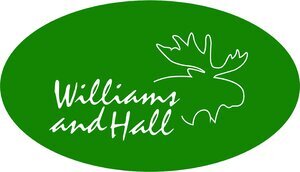What Age for a BWCA Canoe Trip?
What Age For a BWCA Canoe Trip?
As we’ve traveled the country introducing people to the Boundary Waters, we get to answer a lot of really fun questions about Minnesota. Yes, it’s cold in winter, and no, the mosquitoes probably won’t carry you away. We also get to answer some great questions about planning family canoe trips.One question we’re frequently asked is “at what age could I start bringing my children or grand-children?”
It Depends, but Start Slowly
What age for a BWCA canoe trip - the simple answer is it depends. It depends on the kid and the type of trip you want to take. We have many families that come with infants and toddlers and they have wonderful trips. These families prepare their children for the trips and plan the trips around the children.
If you aren’t sure if you’re kids are ready for a canoe trip, then I suggest introducing them to camping first. Try some local or state campsites where a small mishap won’t be the end of the world. Make it fun and bring some comfort items from home. Build a cozy fire where they can roast hot dogs or marshmallows. And what kid doesn’t love sleeping in a tent? (Didn’t we all make tents out of blankets under our mother’s kitchen table or pillow forts on the couch?) Plus, if you’re there, they’ll feel safe in an unfamiliar situation. Some families start by simply putting up a tent in the backyard and going from there.
Once your kids are used to being in the great outdoors, a next step might be going to a local lake or river to try paddling for a short time. Don’t overdo it their first time out, it’s all about enjoying the experience.
bwca kids camping
Planning Tips for Canoeing and Camping with Kids
Now you’re ready to start planning your trip into the BWCA. Here are some suggestions:
For a kid’s first trip, one or two nights might be plenty.
Plan a route that takes you through small calm lakes. Large lakes might be a little too “high adventure” for the little ones. (Especially when those wind picks up.)
Try to plan a route with few or no portages. A portage is to a canoe trip what a highway rest stop is to a family road trip. You only do it when you have to.
Plan meals that are fun and simple so the kids can help in the preparation. (Our kids absolutely loved this part!)
If they’re old enough, bring a child’s fishing rod and help them catch a fish from shore.
Have a list of games you can play with your kids as you paddle around.
Remember when planning a trip with young children that safety, as always, is the first concern.
Everyone should always wear a coastguard approved PFD.
With young children stay near the shoreline when canoeing and away from the shoreline when camping unless supervised.
A BWCA Outfitter Can Help
If you need help planning a trip for your kids, an outfitter such as Williams and Hall (hint hint) would love to help you with route planning and showing you campsites where you can catch fish right from the shore.
A well-planned family canoe trip will build great memories that will last forever. There’s no time like the present to start making family traditions like a canoe trip to the BWCA.
Charlene
For more information on BWCA Family Canoe Trips, click here, or call us at 218-365-5837


